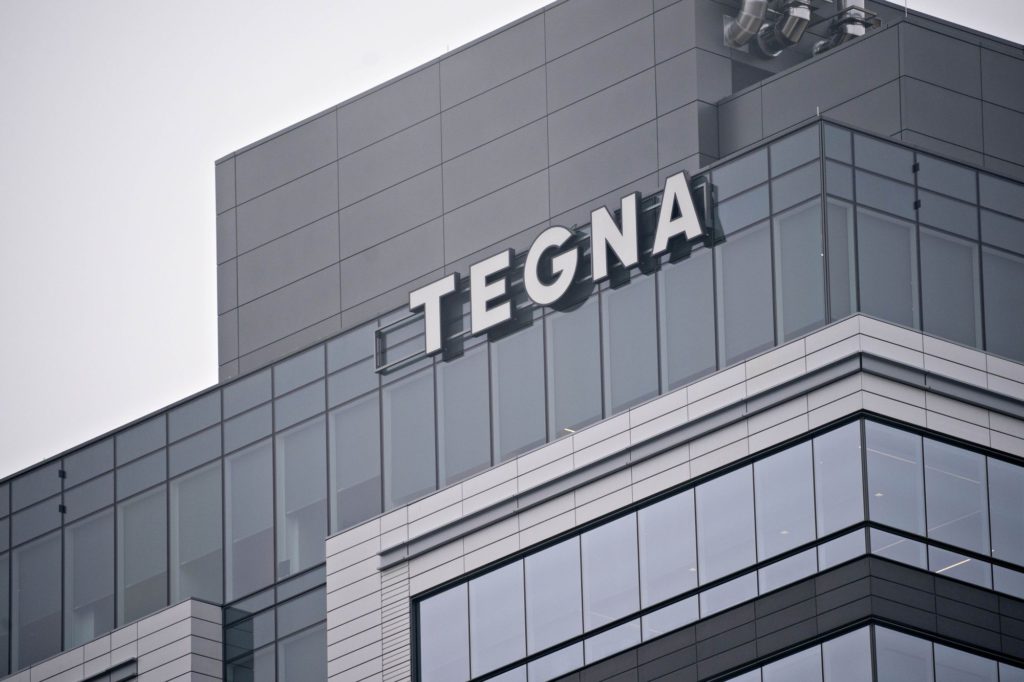Justice Department officials are scrutinizing whether Standard General LP’s proposed $5.4 billion purchase of broadcaster Tegna Inc. could lead to higher cable prices, according to people familiar with the matter.
(Bloomberg) — Justice Department officials are scrutinizing whether Standard General LP’s proposed $5.4 billion purchase of broadcaster Tegna Inc. could lead to higher cable prices, according to people familiar with the matter.
Justice Department lawyers are asking about an unusual element of the transaction involving a station sale, one of the people said. Critics say the sale could hike fees for cable providers, who may pass those costs on to consumers.
The questions are coming in the agency’s antitrust review probing whether the deal is anticompetitive, said the people, who asked not to be named discussing a confidential investigation.
Tegna fell as much as 4.9% on the news and was down 2.8% to $19.95 at 11:55 a.m. in New York.
The purchase, announced in February, by Tegna and investment adviser Standard General is being financed in part by private equity firm Apollo Global Management Inc., which also owns TV stations.
Under the proposed deal, Apollo plans to sell a TV station in Boston to Standard General. US Federal Communications Commission rules would allow Standard General to have new Tegna stations charge pay-TV companies as much for relaying their signals to subscribers as the Boston station charges. Tenga would own 61 stations across dozens of markets following the transaction.
That maneuver “would jack up revenues” from fees “for every Tegna station across the country, the costs of which would be passed on to hardworking consumers,” NewsGuild-CWA, a journalists’ union that’s opposed to the deal, said in a filing.
Antitrust officials are also asking about information-sharing among TV stations that negotiate fees in a market, the person said. Cable companies have pressed regulators to forbid Apollo and the new Tegna from sharing information about fee negotiations. Apollo has said it will play no management role in the new Tegna formed from the transaction. Apollo unit CMG Media Corp. would own 31 television stations in 26 markets after the deal.
In other meetings, the Justice Department attorneys asked about whether Apollo’s involvement in financing the transaction might increase pressure on the company to cut jobs, another person said.
Standard General has told the FCC that the transaction would enhance news coverage, and the competitive market would keep prices in check.
The Justice Department and Standard General declined to comment. Apollo didn’t respond to an email seeking comment.
The administration of President Joe Biden is stepping up antitrust enforcement, saying consolidation across industries may harm workers and consumers. Antitrust enforcers are taking a closer look at the private equity sector, probing several firms including Apollo, Bloomberg reported, over concerns that executives who sit on the boards of rival companies could diminish competition.
If the Justice Department finds the Tegna transaction harms competition, it would ask a court to block it. The deal also needs approval from the FCC.
The NewsGuild-CWA and another opponent, advocacy group American Television Alliance, which represents cable-TV companies, say the deal could lead to job cuts and higher fees for station signals.
Between 2018 and 2019, DOJ sued 12 TV broadcasters — including Tegna and Cox Communications, a precursor to Apollo’s CMG — for illegally exchanging information about television ad sales. The companies all settled, agreeing to stop sharing information on sales.
Those settlements, valid for seven years, would extend to new owners.
(Updates with Tegna drop in fourth paragraph)
More stories like this are available on bloomberg.com
©2022 Bloomberg L.P.











